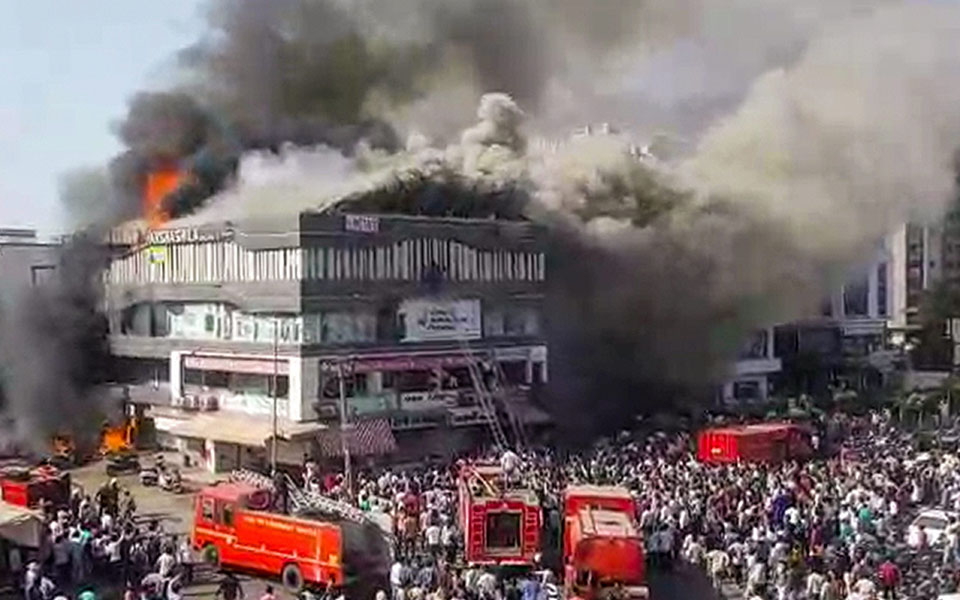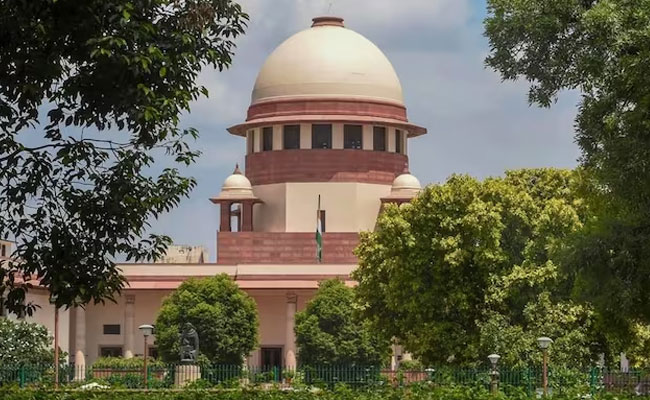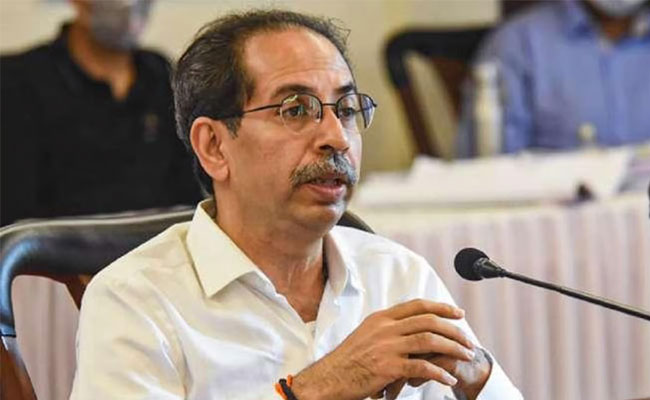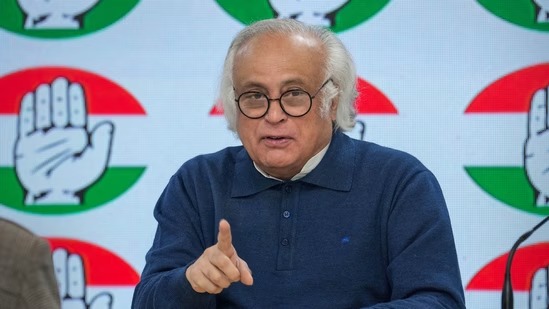Gandhinagar, May 26: Presence of inflammable materials, including flex and tyres, and fire tenders stationed away from the spot contributed to the blaze at a commercial complex in Surat and hampered the fire fighting operation, Gujarat Chief Secretary J N Singh said Sunday.
Twenty-two students, including 18 girls, of an art and craft coaching institute died in the devastating fire that engulfed the four-storeyed Takshashila Arcade in Sarthana area of Surat on Friday.
Preliminary probe revealed that use of highly inflammable materials and tyres, which doubled up as chairs in the coaching class, caused the fire to spread rapidly, Singh said.
"The fire spread very quickly because highly inflammable materials, such as flex, were used... The ceiling (of the coaching institute) was just five feet high. Since one cannot sit on a chair in such a room, the owner used tyres instead of chairs for the students," the chief secretary told reporters here.
"High-capacity fire tenders took time to reach the spot as they were stationed at a considerable distance, around 45 minutes away. It hampered the fire fighting operation to some extent," he said.
The municipal corporation has high-capacity fire tenders for dousing fires in multi-storeyed buildings.
The owner of the institute, Bhargav Butani, was arrested on Saturday. The builders -- Harshul Vekaria and Jignesh Paghdal, are on the run.
Singh said two officials of the Surat fire department -- S K Acharya and Kirti Mod -- have been suspended for laxity.
Chief Minister Vijay Rupani has asked Additional Chief Secretary of Urban Development Department, Mukesh Puri, to conduct a thorough inquiry and submit a report on Monday, he said.
In the wake of the tragedy, all the municipalities and municipal corporations in the state have undertaken a massive drive to identify buildings which do not comply with fire safety norms, the chief secretary said.
"All these municipalities and corporations have formed 713 teams to identify such buildings. We have already examined over 9,900 buildings housing tuition classes, malls or hospitals, and issued show-cause notices to over 9,300 premises. Owners have been warned that they should install fire fighting systems or else the buildings will be sealed," Singh said.
"This incident was a wake up call for us and we are sorry and sad about it. We are taking all necessary steps to ensure that such incidents do not take place in future," he said.
Let the Truth be known. If you read VB and like VB, please be a VB Supporter and Help us deliver the Truth to one and all.
New Delhi (PTI): A judgement of a Constitution bench would be "binding" on benches of lesser strength, the Supreme Court has said while recalling an April 2022 verdict delivered by it.
In its order dated April 7, 2022, the apex court had held that a panchayat cannot claim ownership of the land which has been taken from the real owners from their permissible ceiling limits under the land law in Haryana.
The apex court had consequently said panchayats can only manage and control the land which has been taken from the owners and cannot claim title.
"It is pertinent to note here that for the land taken from the proprietors by applying pro-rata cut from the permissible ceiling limits of the proprietors, management and control alone vests with the panchayat but such vesting of management and control is irreversible and the land would not revert to the proprietors for redistribution as the common purposes for which land has been carved out not only include the present requirements but the future requirements as well," it had said.
The top court had delivered the verdict on a batch of appeals against a full bench verdict of the Punjab and Haryana High Court which had examined the legality of sub-section 6 of Section 2(g) of the Haryana Village Common Lands (Regulation) Act, 1961.
In a judgement delivered on Thursday, a bench of Justices B R Gavai and Sandeep Mehta said that when the high court verdict rested on the law laid down by the apex court's Constitution bench in 1966, "the least that was expected" of the court in the judgement under review was to explain as to why the high court was wrong in relying on the 1966 verdict.
"No law is required to state that a judgement of the Constitution bench would be binding on the benches of a lesser strength. Bhagat Ram (1966 verdict) has been decided by a strength of five judges, this court having a bench strength of two judges could not have ignored the law laid down by the Constitution bench in paragraph 5 in Bhagat Ram," the bench said.
The top court delivered its verdict on a plea seeking review of the April 2022 judgement.
It said that "ignoring" the law laid down by the Constitution bench and taking a view totally contrary to the same would amount to a material error, manifest on the face of the order.
"Ignoring the judgement of the Constitution bench, in our view, would undermine its soundness. The review could have been allowed on this short ground alone," it said.
While allowing the review petition, the bench said, "The judgement and order of this court dated April 7, 2022... is recalled and the appeal is restored to file."
The bench directed that the appeal be listed for hearing on August 7.
The top court observed it was settled that the review would be permissible only if there was a mistake or error apparent on the face of the record or any other sufficient reason was made out.
"The review of the judgement would be permissible only if a material error, manifest on the face of the order, undermines its soundness or results in miscarriage of justice. We are also aware that such an error should be an error apparent on the face of the record and should not be an error which has to be fished out and searched," it noted.





